Knee replacement alternatives

-
Contents:
- Prolotherapy
- PRP (Platelet Rich Plasma)
- Acupuncture
- Neuraltherapy
- Hyaluronic Acid
- Just Say No to Ibuprofen
- Cortisone Shots Damage Cartilage
Joint pain is an unpleasant fact of life for millions of people worldwide, yet for many there seems like there’s relatively little they can do about it save for choosing over-the-counter pain relievers such as Ibuprofen/NSAIDs (Non Steroidal Anti-Inflammatory Drugs), regular cortisone shots or even total knee replacement surgery. Cortisone shots and NSAIDs can work to temporarily relieve symptoms, but there’s a catch. Those treatments have long-term side effects that actually make cartilage damage worse. The good news is that medicine has improved and we now have better options which I discuss below. If you need more evidence to dispel any remaining doubts you may have about NSAIDs and steroid injections feel free to skip ahead: why NSAIDs & Cortisone damage joints.
Alternatives to Knee Replacement:
- Prolotherapy (Recommended):
-
Related: Hip Pain Treatment Without Surgery

What makes Prolo so revolutionary is that it works by causing the body to repair itself from the inside. Prolo is short for proliferative, because this treatment causes the body to regrow itself; this technique makes the body’s own natural cartilage proliferate or regrow. Most Prolotherapy medications are comprised of a solution containing dextrose and a local anesthetic. Preservative-free dextrose is used because it stimulates cell production while being non-toxic to the body. According to medical research: “Prolotherapy resulted in clinically meaningful sustained improvement of pain, function, and stiffness scores for knee osteoarthritis” (SOURCE: U.S National Institute of Health). This regenerative joint injection technique is so fascinating because it stimulates damaged joints to heal themselves, without knee surgery. I do recommend prolotherapy as a much less invasive method of knee cartilage repair without surgery.
- PRP Therapy (Recommended):
-
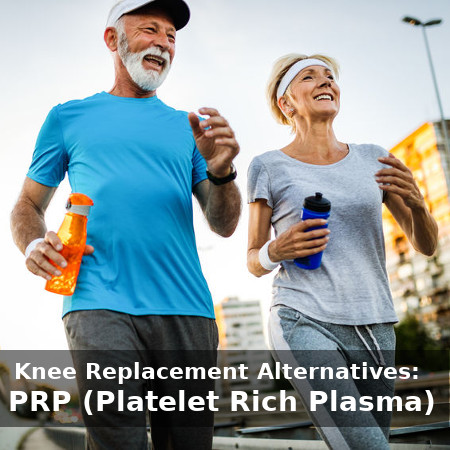
PRP (Platelet Rich Plasma) Therapy is a regenerative medicine process that uses the healing properties of a patient’s own blood platelets to stimulate cartilage regrowth. PRP is so effective at treating Osteoarthritis that the US Library of Medicine considers it a first choice for knee cartilage repair without surgery (Source: Clinical Update, PRP). Platelets are the cells found in human blood that stop you from bleeding when you get cut. But, there’s more to blood platelets than simply stopping leaks. When platelets are activated, they release special growth factor hormones that initiate a localized healing response in nearby body tissues. This makes sense, because the cells surrounding an injury site need to repair the damage caused by an injury. In PRP therapy, we take a small amount of the patient’s blood, separate out the platelets, and then inject those platelets into the area of cartilage/ligament damage. The platelets then signal the body to repair the site naturally. Because the platelets come from your own body, the treatment is very safe.
- Acupuncture (Recommended for support):
-
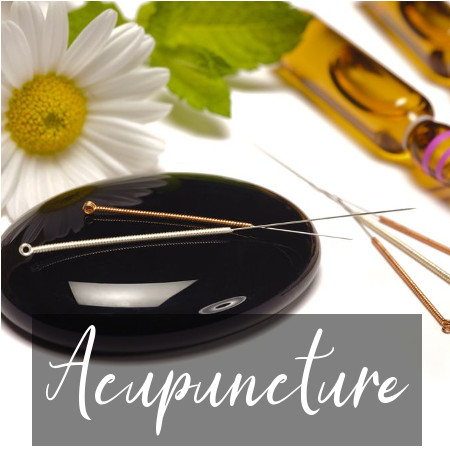
Medical research shows very strong support for the use of acupuncture to treat the pain and physical dysfunction that accompanies osteoarthritis of the knee (SOURCE: PubMed, Acupuncture for Osteoarthritis). In Chinese Medicine, acupuncture is described as shifting the flow of Qi (vital energy) in the body back toward homeostasis. Western researchers describe it a bit differently: the pain relieving properties of acupuncture are derived from the release of endorphins and monoamines, chemicals that stop sensations of pain and increase feelings of well-being. Research also supports acupuncture as effective at relieving the muscle pain/tension that can pull damaged joints out of alignment. While acupuncture is not a cure, it is a great way to reduce pain and ease the muscle tension that accompanies osteoarthritis and knee injuries.
- Neural Therapy (Recommended for support):
-
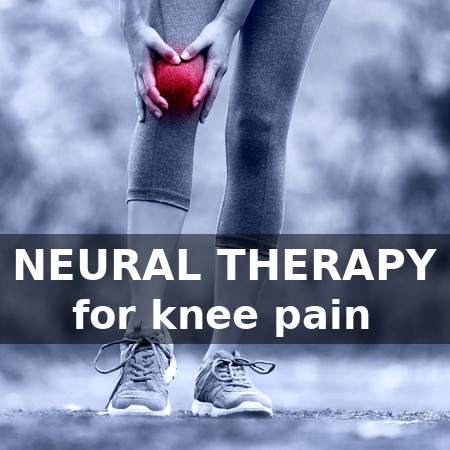
Neural therapy is a type of injection therapy focused on relieving pain and reducing muscle tension that can cause harmful joint misalignment. Sensations of pain increase muscle tension while causing a stress response that reinforces further damage and even more pain, creating a positive feedback loop. Popular in Europe, neural therapy’s method of action is the disruption of nerve signals and the sensation of pain using a local anesthetic. The increased muscle tension caused by joint pain can actually cause misalignment, resulting in further damage. In a recent study published on PubMed, neural therapy was shown to be effective at treating low back pain when compared to physical therapy. In my clinical practice, neural therapy can be appropriate for some patients who have already tried supportive modalities such as lifestyle changes and acupuncture.
- Hyaluronic Acid (shows promise):
-
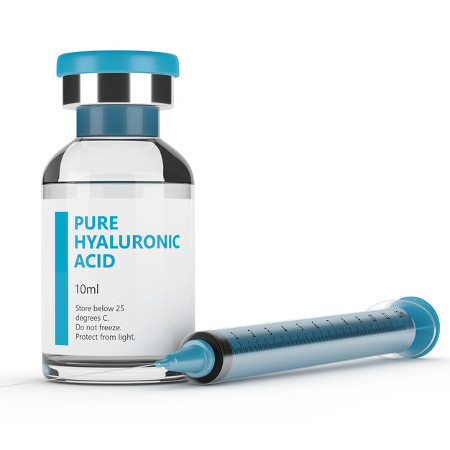
Hyaluronic Acid is a natural component of our body’s synovial fluid, which is a viscous liquid that naturally lubricates joints and has shock-absorbing properties. As a medication for injection, Hyaluronic Acid has been shown to be an effective treatment for osteoarthritis, with researchers citing its beneficial properties including joint lubrication and shock absorption (SOURCE: PubMed Study on Hyaluronic Acid for Osteoarthtritis). I prefer Prolotherapy and PRP, as I have more experience with them and those specific treatments have been shown to produce knee cartilage repair without surgery. Nonetheless, since Hyaluronic Acid is naturally present in healthy joints because it lubricates while providing cushioning to joints, it may well be a better/safer alternative than NSAIDs or Steroids.
- Ibuprofen/Advil (not recommended):
-
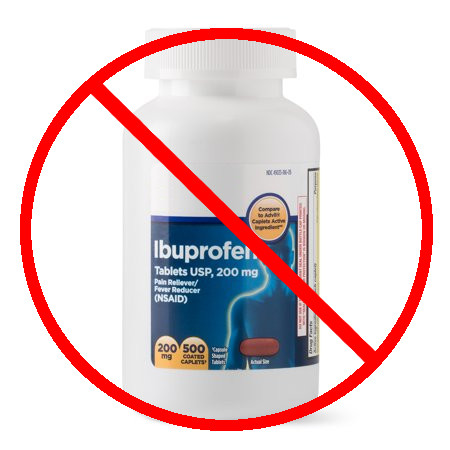
While NSAIDs do temporarily relieve pain and reduce inflammation in the short-term, these over-the-counter pills actually make the problem worse over time. A growing body of medical research shows that NSAIDs cause cartilage damage. Not only this, but regular Ibuprofen/Advil use brings along a host of other health risks like kidney failure, stroke and heart attack, especially in the elderly (SOURCE: U.S. National Institute of Health). It’s also worth noting that NSAIDs like Ibuprofen cause damage to stomach lining and intestines. I see many patients struggling with poor gut health, so Ibuprofen’s reputation for damaging the digestive tract is just one more reason to avoid it. Because of these harmful side effects, as a doctor I don’t recommend Ibuprofen/Advil or other NSAIDs because they are not a solution for joint pain.
- Cortisone Shots (not recommended):
-

Despite being considered the standard of care for many physicians, the general public is beginning to realize that cortisone shots are a temporary Band-Aid on the road toward total knee replacement. Medical research shows that cortisone/steroid injections cause bone loss while also only offering temporary relief for painful inflammation. Even worse still, the U.S. National Institute of Health is now acknowledging that cortisone injections cause cartilage damage in as little as two years. When a medical treatment such as steroid injections promise relief from symptoms while making the actual damage worse, I cannot recommend it to my patients.
Knee Cartilage Repair Without Surgery
The bottom line for alternatives to knee replacement is that new treatments such as PRP and Prolotherapy can stimulate the body to regrow damaged cartilage and other soft joint tissue. In contrast, even though NSAIDs/Ibuprofen and Cortisone injections reduce pain and inflammation in the short term, they actually increase cartilage and bone loss in the long run, making the painful joint damage even worse over time. The research on NSAIDs and steroids is very clear, the permanent side effects don’t outweigh the short-term benefits. This is especially true given the fact that there are so many better options out there today.
At some point, a joint can become so damaged that a total knee replacement is the only solution. However, some of the above alternatives can be done earlier to repair the damage before it is too late.
